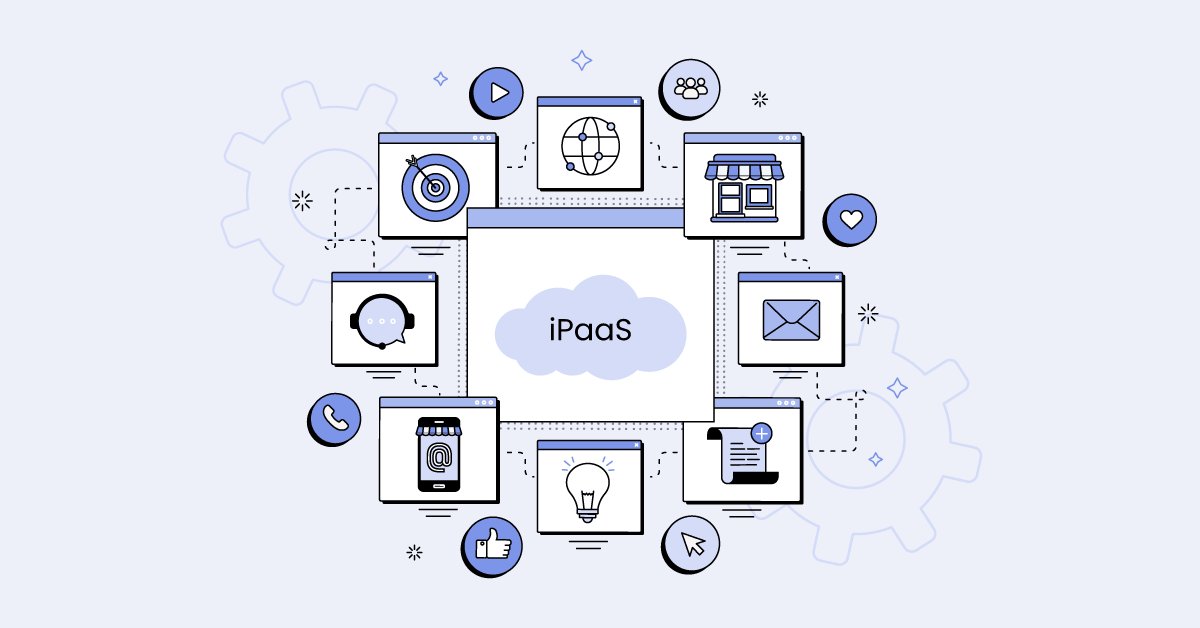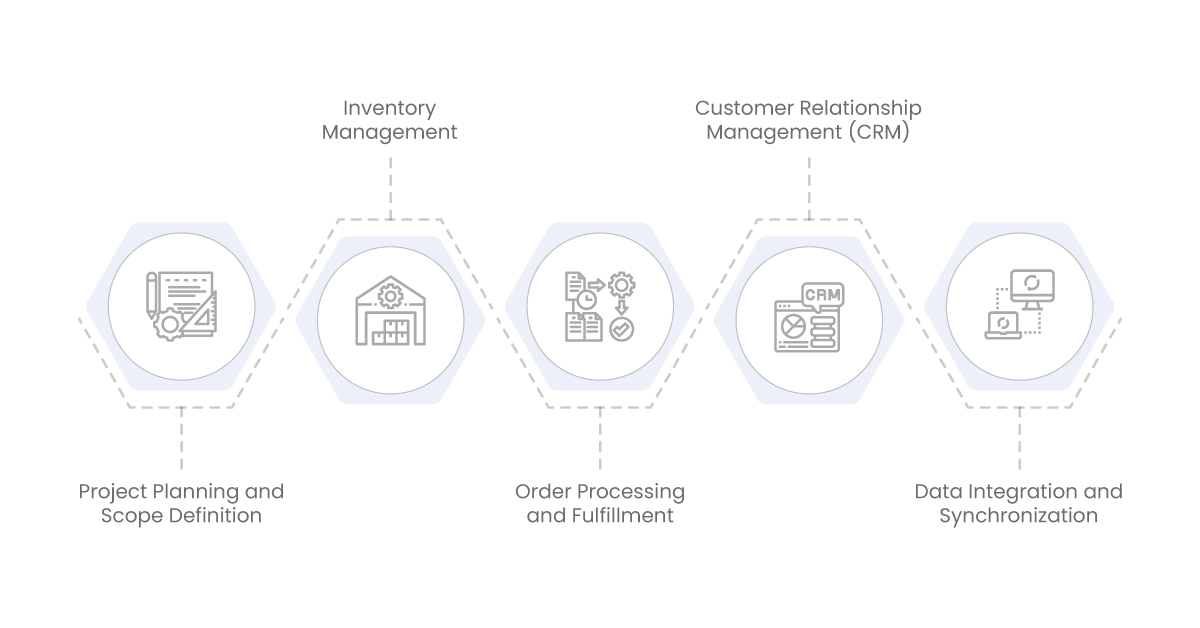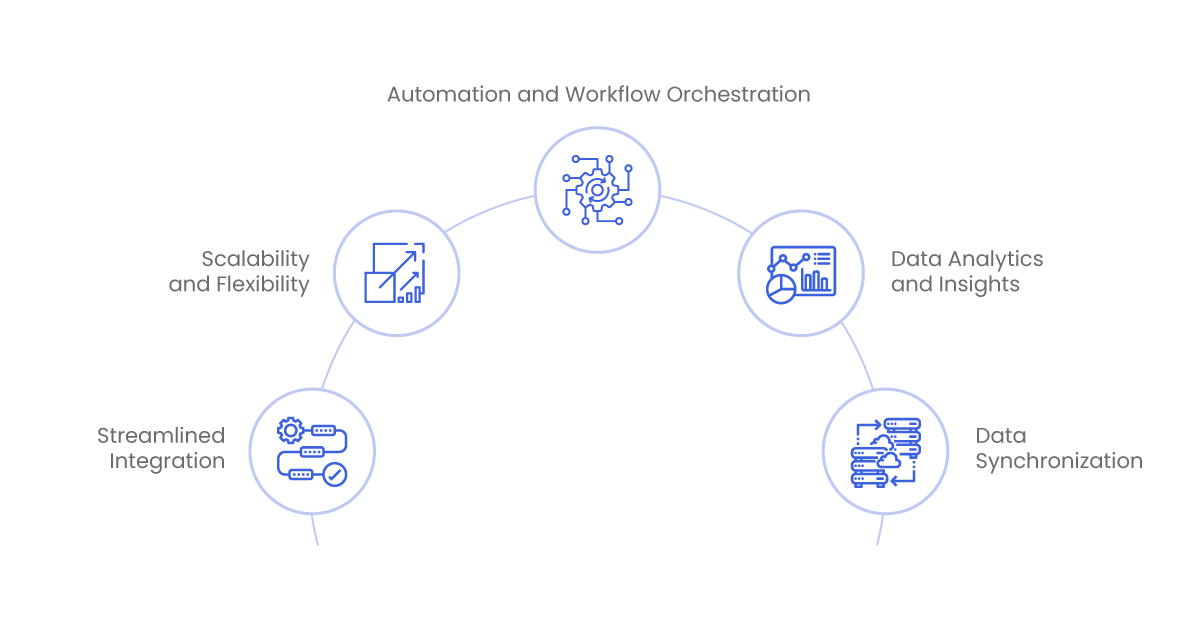E-commerce project management can be a labyrinth of tasks and challenges, especially with the growing complexity of online businesses. However, there’s a beacon of hope amidst this chaos: iPaaS solutions. In this comprehensive guide, we’ll delve into how iPaaS (Integration Platform as a Service) solutions can streamline and simplify e-commerce project management, making it more efficient and effective for businesses of all sizes.
Aonflow iPaaS – Free for First 3 Months!
Build and run up to 1,500 transactions monthly with no cost. No payment info needed!
Understanding E-commerce Project Management
E-commerce project management encompasses a multitude of interconnected tasks and processes aimed at ensuring the smooth functioning of online businesses. Let’s delve deeper into the various facets of e-commerce project management:
Project Planning and Scope Definition
At the heart of every successful e-commerce venture lies meticulous planning and precise scope definition. This involves:
- Defining Project Goals and Objectives: Clearly outlining the purpose and desired outcomes of the project is crucial for setting the right direction.
- Creating a Comprehensive Project Plan: Developing a detailed project plan entails breaking down tasks, establishing timelines, allocating resources, and identifying potential risks and constraints. This serves as a roadmap guiding the project from inception to completion.
Inventory Management
Efficient inventory management is essential for maintaining optimal stock levels and meeting customer demand. Key aspects include:
- Tracking and Managing Inventory Levels: Utilizing inventory management systems to monitor stock levels in real time, track product movements, and forecast demand.
- Ensuring Stock Availability: Striking the delicate balance between having sufficient inventory to fulfill orders promptly and avoiding excess stock that ties up capital and storage space.
- Avoiding Overstock or Stockouts: Implementing inventory replenishment strategies and utilizing inventory optimization techniques to prevent overstocking or stockouts, thereby minimizing revenue loss and optimizing operational efficiency.
Order Processing and Fulfillment
Smooth order processing and efficient fulfillment are critical for delivering a seamless shopping experience to customers. This involves:
- Receiving and Processing Orders: Promptly receiving orders placed by customers through various sales channels and accurately processing them for fulfillment.
- Managing Order Fulfillment: Coordinating the fulfillment process, including picking, packing, and shipping orders promptly while ensuring accuracy and quality.
- Shipping Logistics: Optimizing shipping operations, selecting appropriate carriers, and managing shipping costs to ensure timely delivery and customer satisfaction.
Customer Relationship Management (CRM)
Building and nurturing strong customer relationships is essential for fostering loyalty and driving repeat business. Key components of CRM include:
- Building and Maintaining Customer Relationships: Engaging with customers through personalized communication, targeted marketing campaigns, and loyalty programs to foster brand loyalty and customer retention.
- Managing Customer Inquiries: Addressing customer inquiries, concerns, and feedback promptly and efficiently to enhance customer satisfaction and resolve issues effectively.
- Support Requests: Providing timely and effective customer support through various channels, including email, live chat, and social media, to address customer queries and resolve issues promptly.
How iPaaS Solutions Address These Challenges
In the era of interconnected systems and data-driven decision-making, seamless data integration and synchronization are paramount. This involves:
- Integrating Data from Various Sources: Consolidating data from multiple sources, including e-commerce platforms, ERP systems, CRM software, and third-party applications, to create a unified view of business operations.
- Ensuring Data Consistency and Accuracy: Implementing data integration and synchronization processes to ensure that data remains consistent, accurate, and up-to-date across all systems and applications, enabling informed decision-making and actionable insights.
By understanding and effectively managing these key components of e-commerce project management, businesses can streamline operations, enhance efficiency, and deliver exceptional experiences to their customers.
Challenges in E-commerce Project Management
While e-commerce presents lucrative opportunities for businesses, it also presents a myriad of challenges in project management. Here’s an in-depth look at some of the most prevalent hurdles:
Complexity of Integration
The e-commerce landscape is a tapestry of diverse systems and applications, each serving a specific function. However, integrating these disparate systems into a cohesive ecosystem can be a daunting and time-consuming task. The intricacies involved in connecting e-commerce platforms, ERP systems, CRM software, and third-party applications require careful planning, robust infrastructure, and specialized expertise.
Data Silos
One of the most pervasive challenges in e-commerce project management is the presence of data silos. Data scattered across different platforms and systems can lead to inconsistencies, duplication, and inefficiencies. This fragmented data landscape hampers collaboration, decision-making, and data-driven insights, posing significant hurdles to operational efficiency and business growth.
Scalability Issues
As businesses scale and expand their e-commerce operations, managing projects becomes increasingly complex and resource-intensive. Scalability issues arise in various aspects, including infrastructure, technology, processes, and workforce. Scaling up e-commerce projects requires careful planning, strategic investments, and scalable solutions that can adapt to evolving business needs and accommodate growing volumes of data and transactions.
Legacy Systems
Many businesses grapple with legacy systems that are outdated, inflexible, or incompatible with modern e-commerce requirements. These legacy systems pose significant challenges in terms of integration, interoperability, and agility. Upgrading or replacing legacy systems can be a daunting task, requiring substantial investments of time, resources, and expertise. However, failing to address legacy system constraints can hinder innovation, agility, and competitiveness in the fast-paced e-commerce landscape.
Time Constraints
In the dynamic world of e-commerce, time is of the essence. Meeting tight deadlines while ensuring quality can be a delicate balancing act. E-commerce projects often operate within strict timelines driven by market dynamics, seasonal fluctuations, promotional campaigns, and competitive pressures. Managing time constraints requires efficient project planning, effective resource allocation, and streamlined workflows to deliver projects on schedule without compromising quality or customer satisfaction.
How iPaaS Solutions Address These Challenges
iPaaS solutions offer a comprehensive approach to e-commerce project management by providing a unified platform for integration, automation, and data management.
Let’s explore how iPaaS solutions tackle the challenges faced in e-commerce project management:
Streamlined Integration
iPaaS solutions act as the glue that seamlessly binds together disparate systems and applications, simplifying the integration process. Here’s how:
- Facilitating Seamless Integration: iPaaS solutions provide a unified platform that effortlessly connects e-commerce platforms, ERP systems, CRM software, and third-party applications. This eliminates the need for custom-built integrations and minimizes the complexities associated with connecting diverse systems.
- Pre-built Connectors and APIs: With pre-built connectors and APIs, iPaaS solutions offer plug-and-play functionality, allowing businesses to integrate systems with ease. These ready-to-use connectors eliminate the need for manual coding, significantly reducing development time and effort.
Data Synchronization
Ensuring data consistency and accuracy across multiple systems is paramount in e-commerce project management. iPaaS solutions excel in this aspect by:
- Enabling Real-time Data Synchronization: iPaaS solutions facilitate real-time data synchronization across various systems and applications, ensuring that information is always up-to-date and consistent. This eliminates data silos and ensures that all stakeholders have access to the latest information.
- Data Mapping and Transformation: iPaaS solutions offer robust data mapping and transformation capabilities, allowing businesses to adapt to evolving data requirements. Whether it’s standardizing data formats, transforming data structures, or mapping fields between different systems, iPaaS solutions streamline the process and ensure data integrity.
Aonflow is the leading integration platform.
You can kick-start by integrating your first-ever workflow in just a matter of minutes.
Automation and Workflow Orchestration
iPaaS solutions empower businesses to automate repetitive tasks and streamline workflows, enhancing efficiency and productivity. Here’s how iPaaS solutions achieve this:
- Automating Repetitive Tasks: iPaaS solutions automate routine tasks such as order processing, inventory management, and customer communications. By automating these processes, businesses can reduce manual errors, minimize operational costs, and improve overall efficiency.
- Workflow Orchestration: iPaaS solutions offer advanced workflow orchestration capabilities, allowing businesses to design and execute complex business processes with ease. From defining workflow logic to orchestrating task dependencies, iPaaS solutions provide the flexibility and agility needed to streamline project management workflows.
Scalability and Flexibility
In the dynamic world of e-commerce, scalability and flexibility are essential for adapting to changing demands and growth opportunities. iPaaS solutions excel in this regard by:
- Cloud-based Architecture: iPaaS solutions leverage cloud-based architecture, enabling seamless scalability and resource allocation. Businesses can effortlessly scale their infrastructure up or down based on demand, ensuring optimal performance and cost-effectiveness.
- Modular Design and Customizable Workflows: iPaaS solutions feature a modular design and customizable workflows, allowing businesses to tailor the platform to their specific needs. Whether it’s adding new integrations, modifying existing workflows, or incorporating custom business logic, iPaaS solutions provide the flexibility and agility needed to adapt to evolving requirements.
Data Analytics and Insights
Data-driven decision-making is instrumental in driving success in e-commerce. iPaaS solutions empower businesses with advanced analytics and insights, enabling them to optimize their operations and drive growth. Here’s how iPaaS solutions deliver value through data analytics:
- Advanced Analytics and Reporting: iPaaS solutions offer advanced analytics and reporting features, providing businesses with valuable insights into e-commerce performance and trends. From sales analytics to customer behavior analysis, iPaaS solutions equip businesses with the tools they need to make informed decisions and drive strategic initiatives.
- Predictive Analytics: iPaaS solutions leverage predictive analytics capabilities to anticipate future trends and behaviors, enabling businesses to proactively address challenges and capitalize on opportunities. By leveraging predictive analytics, businesses can optimize inventory management, personalize marketing campaigns, and enhance customer engagement, driving long-term success in e-commerce.
Case Study: XYZ Inc.
Let’s take a look at how XYZ Inc., a growing e-commerce retailer, leveraged iPaaS solutions to streamline their project management processes.
- Integration of E-commerce Platforms: XYZ Inc. integrated its Magento e-commerce platform with its ERP system using an iPaaS solution, enabling seamless order processing and inventory management.
- Automation of Order Fulfillment: By automating order fulfillment workflows, XYZ Inc. reduced manual errors and improved delivery times, leading to higher customer satisfaction.
- Real-time Data Synchronization: iPaaS solutions ensured real-time synchronization of inventory data across multiple sales channels, preventing stockouts and overselling.
- Advanced Analytics: XYZ Inc. utilized iPaaS analytics tools to gain insights into customer behavior and preferences, enabling targeted marketing campaigns and product recommendations.
Conclusion
iPaaS solutions offer a powerful toolkit for simplifying e-commerce project management, enabling businesses to overcome integration challenges, streamline workflows, and unlock valuable insights. By embracing iPaaS technology like Aonflow, e-commerce companies can stay ahead of the curve and deliver exceptional customer experiences in today’s competitive marketplace.
Aonflow iPaaS – Free for First 3 Months!
Build and run up to 1,500 transactions monthly with no cost. No payment info needed!


